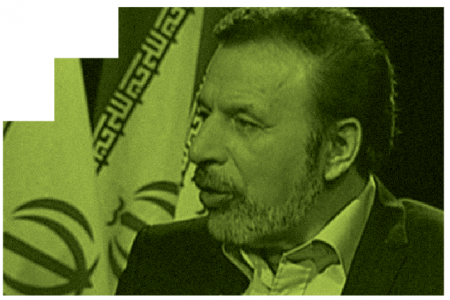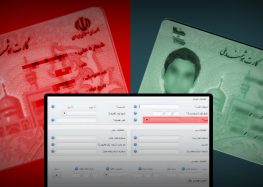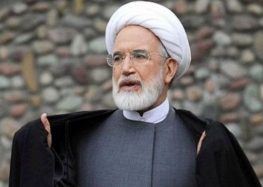Ministry of Communications and Information Technology
 Limiting Internet access, censoring and filtering websites
Limiting Internet access, censoring and filtering websites
Limiting Internet speed
State-sponsored hacking
Monitoring and targeting citizens
Jamming satellite signals
Recommendations
Limiting Internet access, censoring and filtering websites
The government of Iran blocks access to millions of websites from within the country. Under the supervision of the Supreme Council of the Cultural Revolution, representatives of Islamic Republic of Iran Broadcasting (IRIB), the Ministry of Intelligence, and the Ministry of Communications and Information Technology systematically limit Iranian users’ access to websites and other Internet services based on a law passed by the Iranian Parliament which says that websites can be filtered if they contain criminal content. Such content is determined by an eleven-member committee (six members of which are from the President’s cabinet) formed by the Iranian Judiciary which meets under the General Prosecutor.
However, the committee actually filters websites that are political in nature or critical of the government. For example, during the 2009 and 2013 presidential elections, the Iranian government severely limited Iranians’ access to news and information websites, as well as their access to social media websites such as Facebook and Twitter. While the Iranian authorities do not publish official statistics on filtered websites, various officials have made reference to millions of websites being filtered.
The government’s latest efforts have revolved around creating a “national Internet” (intranet), which will only provide access to content approved by the Iranian government and will include built-in surveillance of all online activity, including email and other personal correspondence.
The Ministry of Communications and Information Technology currently limits the speed of Internet access from the homes of private citizens. According to a directive sent to all Internet Service Providers (ISPs) in Iran in 2006, they are not to provide access speeds in excess of 128 Kbps to home users. The directive continues to this day, with home users often experiencing speeds as low as 6 Kbps. At this reduced speed, accessing online information or sharing files becomes difficult if not impossible.
The mean download speed for all Internet users in Iran, including residential and business, was 2.17 Mbps in the first six months of 2013, placing Iran 172nd out of 184 countries measured by Net Index. As many Iranians rely on the Internet for information and education, access to news outside of the heavily state-censored media, and communication, the government’s Internet speed directives result in severe restrictions of access to information. In September 2012, Iran’s then–Minister of Communications Reza Taghipour acknowledged the state’s role in limiting Internet speeds and bandwidth, claiming that this was done for security reasons.
There have been many reports of denial of service attacks (flooding a site with so much traffic that it is unable to maintain online access) against websites critical of the Iranian government, and significant evidence that the Iranian government is behind these attacks. There have been no investigations into the attacks.
In May 2010, a Revolutionary Guards’ commander, Ebrahim Jabbari, confirmed that the IRGC had created a Cyber Army. Over the past several years, the Cyber Army has mounted denial of service attacks against many websites, especially those of political dissidents or people critical of the government, and has been actively hacking the emails, Facebook pages, and Twitter accounts of students and activists in order to access their private information, all without warrants or just cause.[1]
Monitoring and targeting citizens
Communications surveillance in Iran is extensive and particularly focused on the monitoring and harassment of private Iranian citizens who criticize the government. The Iranian government regularly taps cell phones and landlines to monitor citizens without legal permission or court review. Activists report that their families’ telephone lines are constantly tapped in addition to their own; several of them have been directly informed of the phone tapping by representatives from the Ministries of Communications and Intelligence.[2]
Furthermore, the Ministry of Communications has been collaborating with the Ministry of Intelligence to use tracking technology to monitor the whereabouts of activists and political dissidents, assisting state efforts to harass and/or detain such individuals.[3] The Ministry of Communications has also been using voice recognition tools to target activists and political dissents on orders from the Ministry of Intelligence.[4]
Iran also continues to monitor bloggers, arresting and imprisoning them for exercising their right to freedom of expression, in direct violation of Iran’s constitution and the ICCPR, to which Iran is a signatory.[5]
The Ministry of Communications and Information Technology has been aggressively combating satellite technology. The Iranian police routinely raid private homes to collect and destroy satellite television hardware. Military organizations have also engaged in massive-scale jamming of satellite television signals to block access to satellite programming broadcast from Persian-language television networks outside Iran, as well as other networks.
While several Iranian authorities, including a former Minister of Communications, have warned about the health hazards of satellite jamming signals, no organization has so far assumed responsibility for the practice. On August 21, 2012, in an oblique acknowledgement of such jamming, then–Minister Reza Taghipour told the Iranian Parliament’s News Agency, ICANA, that the jamming signals have nothing to do with the Ministry of Communications and Information Technology and that his Ministry was attempting to discover the source of the jamming signals. However, the Head of the Iranian Parliament’s Health Commission Hosseinali Shahriari said in August 2012 that the Communications Minister and Members of the Parliament are all aware of the source of the jamming signals, but refuse to announce it.
Massoumeh Ebtekar, the Head of Tehran City Council’s Environment Commission, has repeatedly expressed concern about the effects of the jamming signals on citizens’ health. There are reports that the waves used to jam signals are physically harmful to humans. Some reports allege that the rates of cancer and infertility may be higher in regions where there are satellite jamming devices. “As an immunologist and researcher, I can say that these signals can be the source of many complications and illnesses,” Ebtekar said in May 2013, as reported by Khabar Online. To date, there have been no official investigations into the health effects of satellite jamming.
Recommendations for the Ministry of Communications and Information Technology:
- Ensure that the filtering committee be independent of political, commercial, or other unwarranted influences. Implement the recommendations of the UN Special Rapporteur on freedom of expression, as laid out in his May 2011 report.
- Provide a public list of blocked websites along with explanation and justification for blocking each website.
- Ensure that the filtering committee only censor criminal content, rather than using filtering as a tool to silence political opponents or limit access to online education.
- Stop violating freedom of speech and expression, as protected by the Iranian constitution and the International Covenant on Civil and Political Rights (ICCPR), which Iran has signed.
- Stop imprisoning bloggers for exercising their right to freedom of expression, and release all currently imprisoned bloggers.
- Lift restrictions on Internet speeds for Iranian users (Iran is the only country in the world to use Internet speed as a means for censorship of Internet).
- Investigate the systematic denial of service attacks, and hold the perpetrators accountable. Given its role as a guardian of the constitution, the Ministry must confront the extra-legal acts of the IRGC’s Cyber Army and put an end to them.
- End broad monitoring of private citizens’ communications. Establish transparent criteria for monitoring specific individuals with cause, including requiring a warrant for surveillance.
- Put an end to all tapping and monitoring of dissidents and their families.
- End jamming of international satellite channels and investigate the impact of satellite jamming on people’s health.
- As Head of the National Security Council, Rouhani can order the police to stop raiding people’s homes and rooftops to collect and destroy satellite hardware. He can also order an end to the transmission of signals aimed to jam satellite programs.
- Lift the monopoly on Internet services and provide Fiber to the Home (FTTH) cable services.
- The Communications Minister should order a review of the “National Internet,” and ensure that such a network does not limit or restrict Iranians’ access to the outside world or endanger their privacy.
Download the full report here (PDF)






